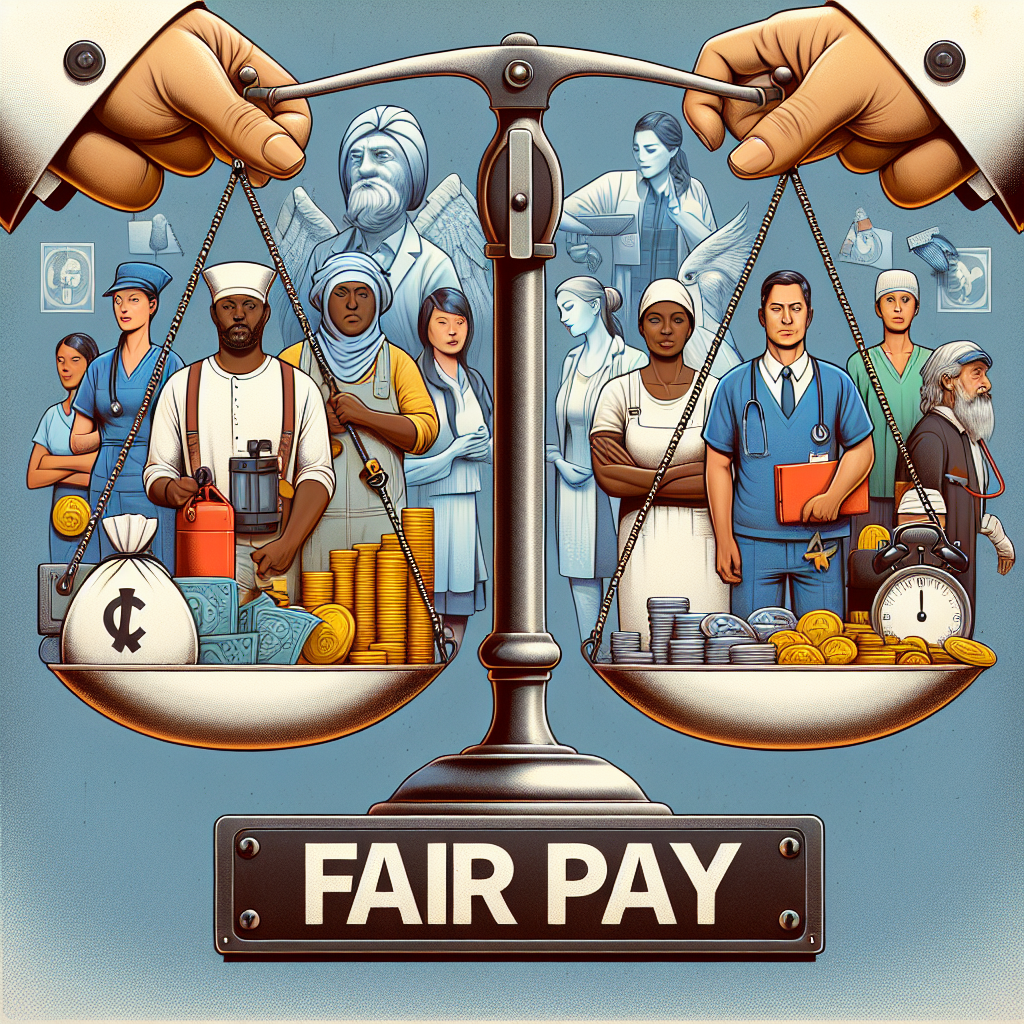New York, NY—In an era where wage disparity and economic uncertainty loom large, the conversation around fair pay practices has taken center stage in the corporate world. An increasing number of companies across the United States are now recognizing the significance of fair remuneration not only as a moral obligation but as a strategic business move to foster loyalty, improve employee morale, and boost productivity.
Fair pay, a concept that entails compensating employees equitably regardless of their gender, race, or other unrelated job performance factors, is emerging as a key indicator of a company’s values and operational integrity. A recent Gallup poll revealed that organizations that prioritize pay equity are 13% more likely to experience higher job satisfaction rates among their employees. This statistic underscores the tangible benefits of fair pay practices beyond the confines of social justice.
“Ensuring every employee receives fair compensation is not just about ticking a box for diversity and inclusion; it’s about acknowledging their value and contribution to the company,” said Diane Maxwell, CEO of TechForward, a leading software company that recently conducted an internal audit to address and rectify pay disparities.
Companies like TechForward are taking proactive steps by implementing transparent pay scales, conducting regular salary audits, and offering equal pay for equal work. By doing so, they are not only setting a benchmark for fairness but are also seeing a positive impact on their bottom line. Employees who feel valued and fairly compensated are more likely to stay committed to their employer, reducing turnover rates and the costs associated with hiring and training new staff.
However, the journey towards achieving fair pay is not without challenges. Critics argue that the complexity of job roles and individual performance metrics makes standardized compensation difficult to implement. Moreover, the historical undervaluation of certain job roles, often those dominated by women and minorities, poses a significant hurdle in rectifying pay inequity.
Despite these challenges, the momentum for change is building. Legislative efforts, such as the Paycheck Fairness Act, seek to strengthen laws that protect workers from pay discrimination. Meanwhile, consumer and investor pressure is mounting on companies to not only talk the talk but walk the walk when it comes to social responsibility and equitable pay.
As the corporate landscape continues to evolve, fair pay practices are no longer a nice-to-have but a must-have for companies aiming to thrive in the modern business environment. Companies that embrace this shift not only stand to gain a competitive edge but also contribute to a broader movement towards economic justice and equality.


